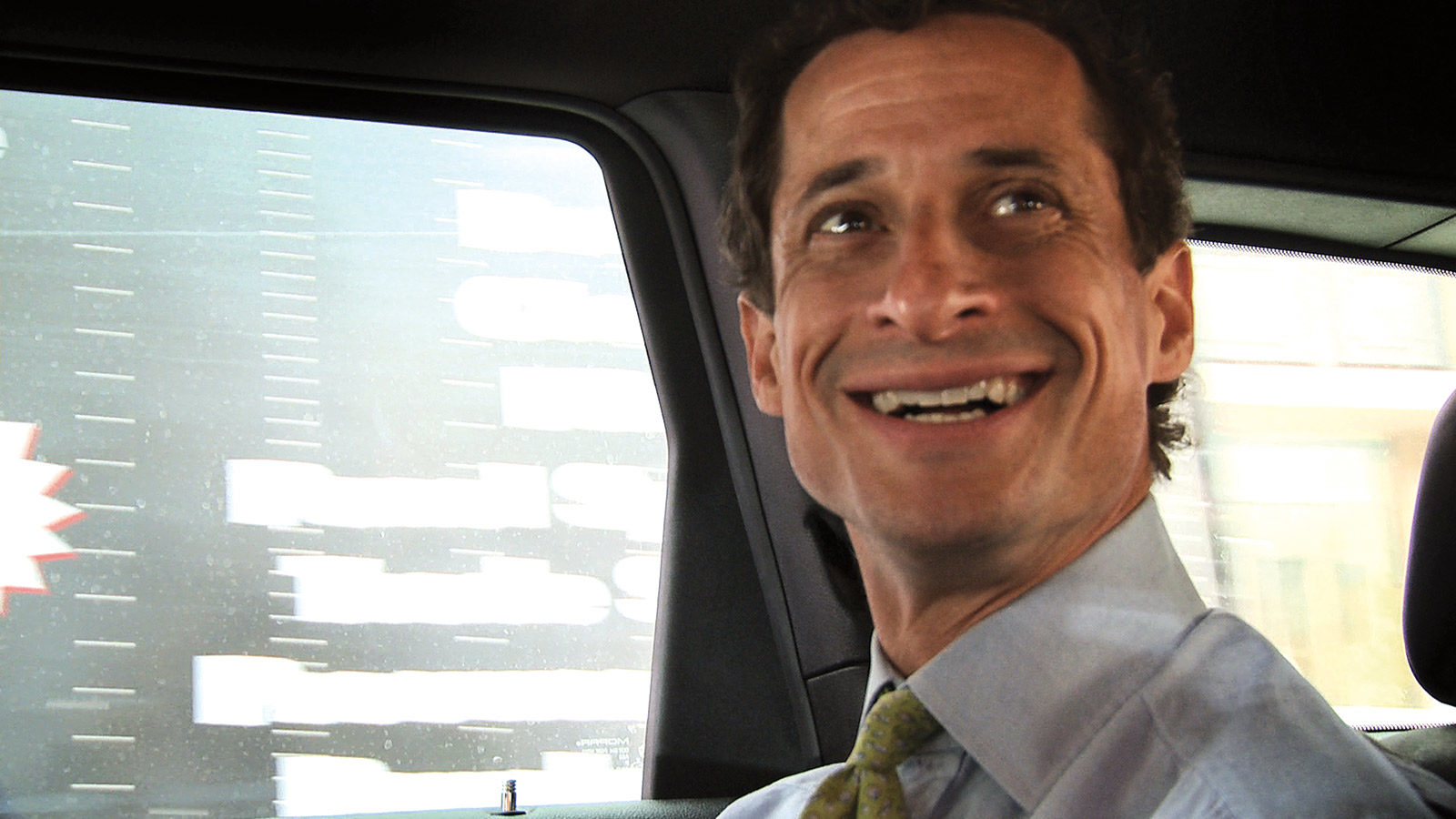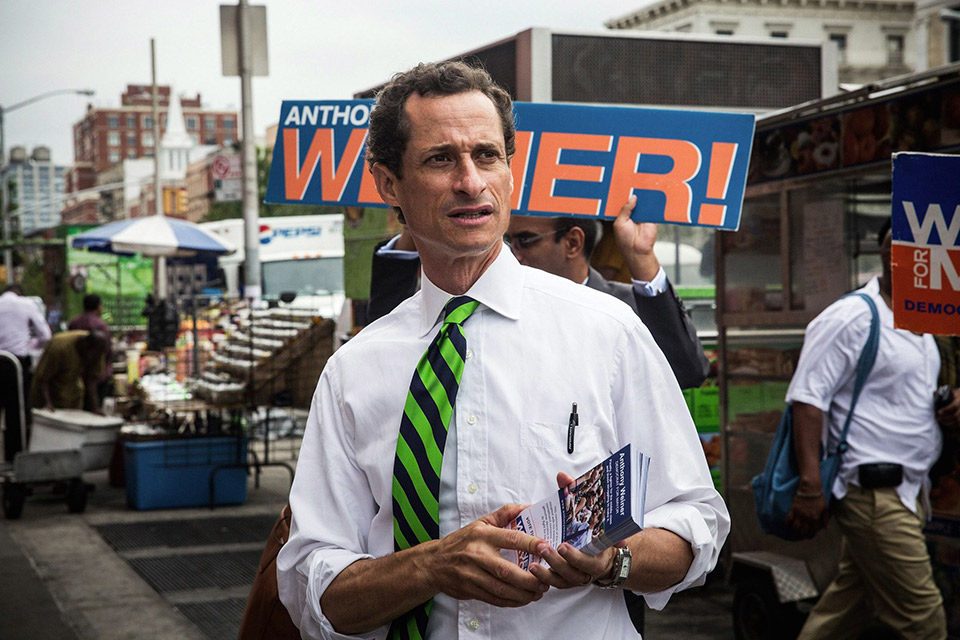By Eric Hynes in the May-June 2016 Issue

Review: Weiner
(Josh Kriegman & Elyse Steinberg, U.S., 2016)
From hubris to humble pie, dick pics to punch line, the fall of Anthony Weiner is a thoroughly American political story. And thanks to astonishing access, it’s one that filmmakers Josh Kriegman and Elyse Steinberg both illuminate and manifest with Weiner, a largely observational documentary recorded during the New York politician’s failed mayoral campaign of 2013. That the recently disgraced, and as it turned out, still below-the-belt-selfie-obsessed Weiner thought it wise to allow cameras into his work and private spaces suggests an ego angling heedlessly toward delusion. The film doesn’t fail to make this plain—the candidate’s pugilistic resolve in the face of national disgrace makes him a screen character for the ages—but neither does the film decline to profit from it.

From the May-June 2016 Issue
Also in this issue
Save for an unfortunate introductory montage in which zippy music drowns out the former congressman’s impassioned advocacy for 9/11 workers—style and personality literally eclipsing substance from the get-go—things start off quietly enough. Two years after resigning from Congress over extramarital sexting revelations, Weiner mounts a New York mayoral candidacy. Thanks to name recognition, a gathering comeback narrative, and his still formidable commitment to public service, he rises to the top of pre-election polls. A certain swagger returns, with the political beast hungrily back in his element. We see him give vigorous high-fives at parades, drop policy initiatives on talk shows, and pose for magazine-profile photo spreads with his wife, top Hillary Clinton aide Huma Abedin. Then, with the inevitability of a second-act plot turn, a new wave of sexting allegations rise up and sink Weiner in a sea of scorn and mockery.
Weiner’s re-fall was a major, juicy news story just three years ago. Told from the inside, the narrative is even more compelling, especially as the short-tempered, miraculously still-proud candidate can’t help but take the bait of grandstanding cable news moralists and pedestrian potshot-takers. The image of Weiner alone in an empty TV studio, fatally snickering at questions from a remote cable news anchorman, articulates the demise of a once-promising political career in one swift stroke. He’s a man pushed to his very worst, yet convinced—or furiously convincing himself—he’s still at his best.

As powerful, and frankly delicious, as this is to witness, the film begins to feel like an instrument of Weiner’s comeuppance rather than a thoughtful vantage onto it. To the filmmakers’ credit, they include Weiner’s wearied protestations to this effect. When Kriegman asks one too many questions as they ride in the backseat of a car, the subject wonders what part of “fly on the wall” entails such interrogation. And in a post-campaign studio interview, a visibly uncomfortable Weiner fears this documentary will only contribute to “the entertainment industrial complex” that helped bring him down. His own obvious complicity aside, Weiner’s not wrong to raise this possibility, and the filmmakers’ unwillingness to really wrestle with an idea that’s not merely a complicating opinion, but rather the critique of what it is that we’re watching only deepens the thrust of his charge.
There’s nothing inherently wrong with shaping a true story into an entertaining movie—at base, it’s what most documentaries strive to do. The problem is that Weiner tells a fully expected story, leveraging laughs out of the politician’s pre-mocked predicament, and shaping near-silent appearances by Abedin into a sympathy-courting foil—the beautiful, too-smart-for-this-shit spouse cast as a suffering heroine. While the surrounding media make hay with such ready-made simplifications, the filmmakers do much the same. “Why have you let us film this?” they ask Weiner toward the end. And though it’s a tantalizing question for a subject to have to consider on camera, it also implies an interrogator’s abdication. If you’re surprised by what you’ve been permitted to see, shouldn’t the real question be why you’ve invited the world to see it too? It’s not a question of right or wrong, of what should or shouldn’t be shown, but of the purpose of complying with, and capitalizing on, such self-exposure.
Eric Hynes is a freelance journalist and critic, and associate film curator at the Museum of the Moving Image in New York.







